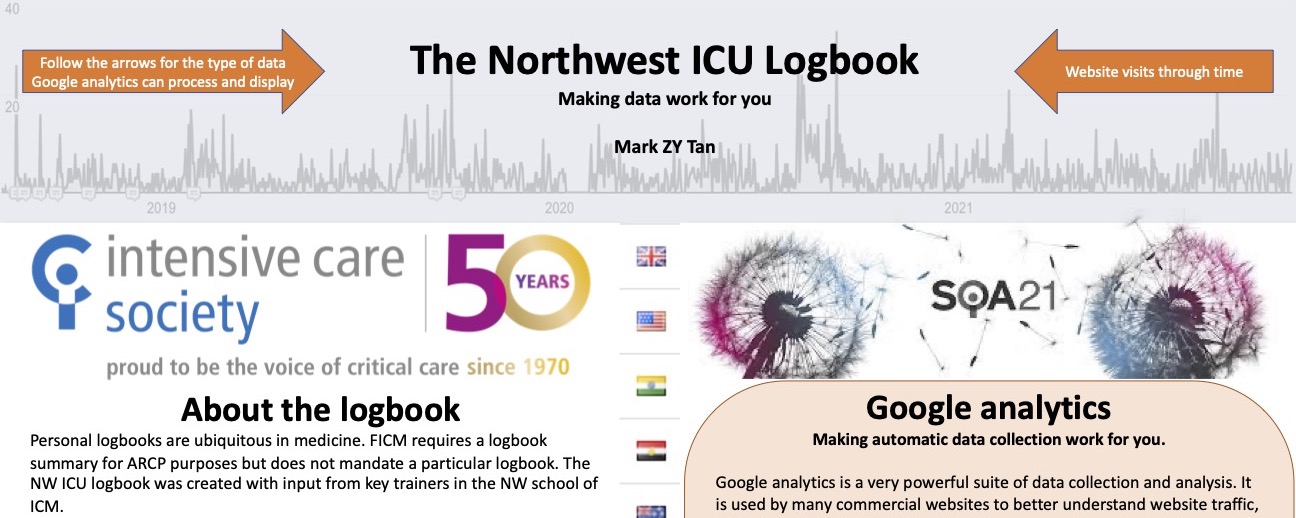Well, never would I have thought a measly Excel/Numbers spreadsheet would garner that much interest, but >3 years, >30 countries and >3000 downloads later, there is a clear desire for better ICU personal logbooks.
It began as an adaptation of the anaesthetic logbook created by my friend Dr Amieth Yogarajah. I also took several ideas from Dr Peter Hersey’s Sunderland ICCU’s logbook. After tweaking the formulae, adding fields suitable for ICU and creating more graphs (who doesn’t like more pretty graphs), I realised that other trainees might actually want to use it too. So when I happend to be on an anaesthetic list with then Training Programme Director Dr Ajmal Eusuf, I mentioned it to him. Unexpectedly, not only did he like it, he suggested I make it available for the rest of the NW school of ICM.
So I did, and at my own ST3 induction, I had the awkward role of being both a new starter, as well as a speaker. Since then, I’ve been speaking to each new batch of ICM trainees. It makes me feel older each year, but seeing new faces continues to fill me with a deep sense of hope and sustainability for the specialty. I have also had the privilege of writing about it in the Faculty of Intensive Care Medicine’s (FICM) Trainee Eye bulletin in September 2018 and September 2019.
This year, I had the privilege for presenting a poster at the Intensive Care Society (ICS) State of the Art (SOA) meeting, but also annouce that the NW ICU logbook will soon also be known as the ICS personal logbook. That’s not all. I will also be working with ICS to develop the logbook into a multi-platform app with all the current features with an improved front-end experience. One of the key back-end goals is to understand regional variation in training opportunities, as well as demonstrate cross-speciality competencies within the newer compentency-based training schemes. This is all the more important during cross-specialty redeployment, which was common at the start of the COVID19 pandemic.
Many will remember our surgical colleagues joining us in ICU, but many of them complained that the time and training they received during their redeployment was not evidenced and therefore did not count towards their training. However, since critical care features as a significant part of the MRCS, this should not have been the case. Hopefully, such a generic logbook may help such redeployment experiences count towards a well-rounded training.
For this poster presentation, I highlight 2 key parts of making data work for you. First is how logbook data can work for you, using the NW ICU logbook and its summary graphs as an example. Having visual representations of complex tables can help to identify training needs, as well as extract data required for ARCP and revalidation purposes. Second, how data analytics can work for projects. This part describes how I learned to use Google analytics to better understand the dissemination of the logbook (diffision of innovation). Automated data collection has the ability to maximise the efficiency of projects, and because of the data collected, I managed to win the Association of NW ICU’s (ANWICU’s) trainee prize in 2019.
ICS published this abstract in Journal of Intensive Care medicine in 2022: https://www.ncbi.nlm.nih.gov/pmc/articles/PMC9358697/
Enjoy the poster, and check back here, or on the ICS website for future updates about the app. In the meantime, download the logbook here.
Here is a short video:

